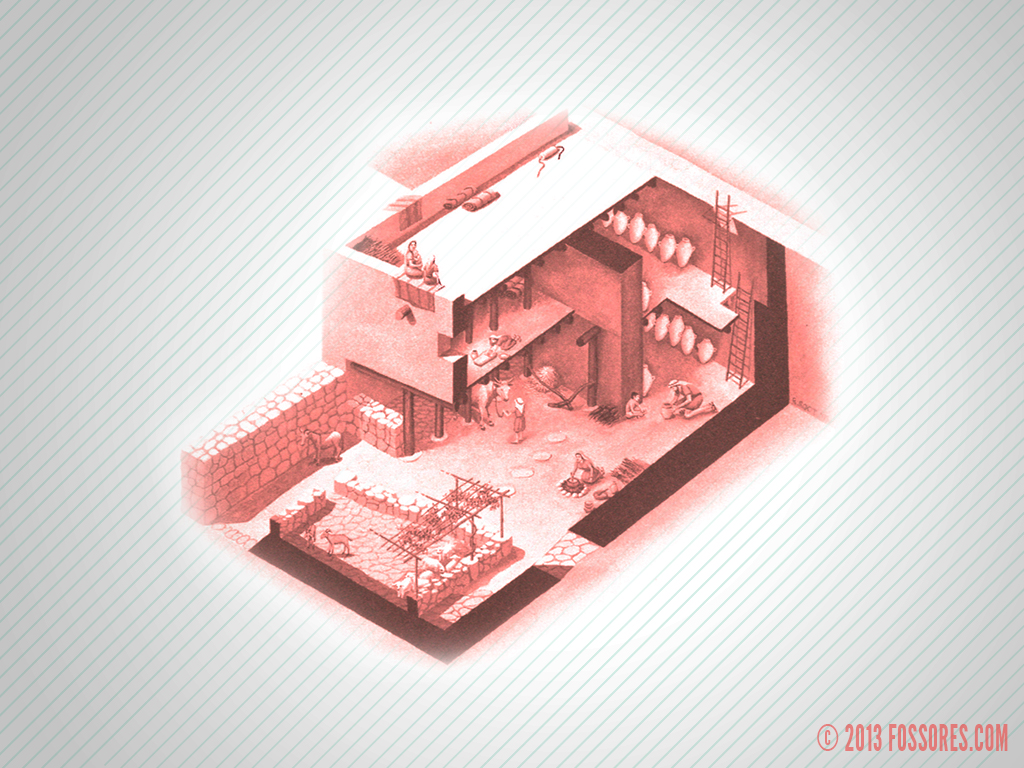In the Christmas story, because of the census ordered by Caesar, Joseph returns to his hometown of Bethlehem with his pregnant fiancée, Mary. When they arrive, they discover “there is no room for them in the inn.” The Greek word that we’ve translated “inn” is the word katalyma, which wasn’t a hotel so much as a guest room in a large family home – in this case, the katalyma in question would have been at the home of Joseph’s family. To give you a picture of such a space, Luke describes Jesus eating the Last Supper with his disciples in a katalyma in Luke 22. It was a modest, comfortable space for conversation, dining, and casual repose.
Bethlehem homes were built into grottos or near the mouths of caves so three of the four sides of the home were protected from the elements. These homes were two stories. The top floor contained the living quarters, and the bottom floor was kind of half-garage, half-barn. Because animals were often the most prized possession of the peasantry, the animals were kept inside on this bottom floor in order to keep them safe from thieves and bad weather. The floor was covered with straw, making it comfortable for the livestock but also acting as insulation for the rest of the home. The animals downstairs were simultaneously treasured and utilized as prized possessions and pre-industrial HVAC units.
That there was “no room in the inn” actually meant Joseph’s family put their pregnant daughter-in-law-to-be in the pole barn. The lack of space for the Holy Family was not due to poor planning on Joseph’s end, but to a deliberate slight on the part of his family. There was a katalyma in these Bethlehem homes, and it wasn’t the bottom floor. Someone else, presumably someone who either (a) hadn’t gotten his girlfriend pregnant or (b) wasn’t about to marry some girl who cheated on her fiancé, was given the guest room while Mary was relegated to the kennel.
Joseph’s family disregarded Mary’s “situation,” partly as punishment for her perceived indiscretion and partly as a manifestation of skepticism concerning God’s involvement in an illegitimate birth.
By all accounts Jesus never fully forgot the insulting circumstances of his entry into the world. He knew what it was like to be cast out, unwanted, and homeless. He knew what it was like for his own family to deny him entry into their home. He was kicked out of his own house before he was even born into it, and as a result Jesus frequently spoke about his desire to give every person a home with their Heavenly Father.
Foxes have dens and birds have nests, but the Son of Man has no place to lay his head.
Luke 9.58
My Father’s house has many rooms; if that were not so, would I have told you that I am going there to prepare a place for you? And if I go and prepare a place for you, I will come back and take you to be with me that you also may be where I am.
John 14.2-3
fossores
Related posts
Categories
Category Cloud
Tag Cloud
Recent Posts
- Victors and Victims November 6, 2018
- 3 Hacks for Happiness October 29, 2018
- Hope Against Death September 20, 2018
- The Shape Of The Cross September 19, 2018


